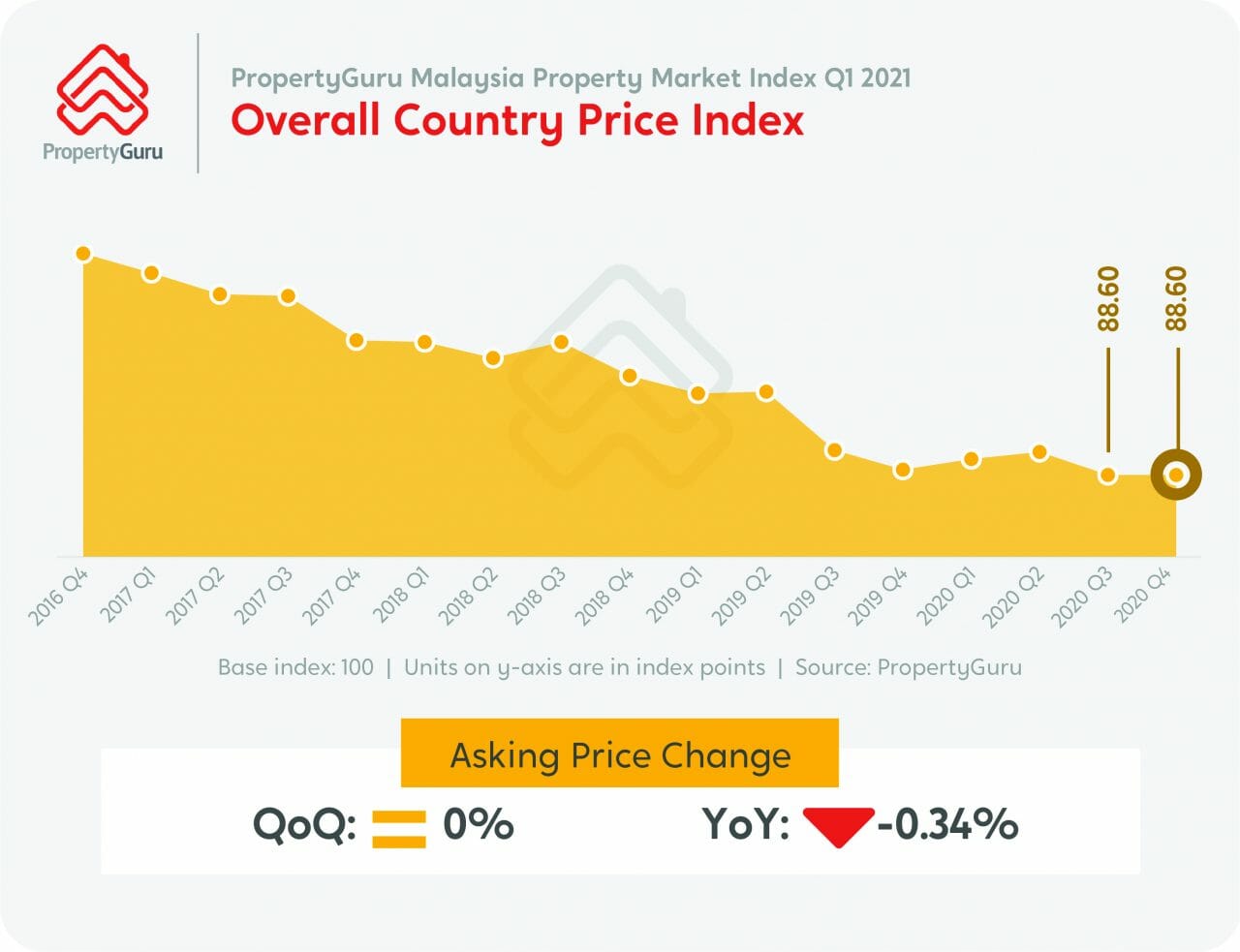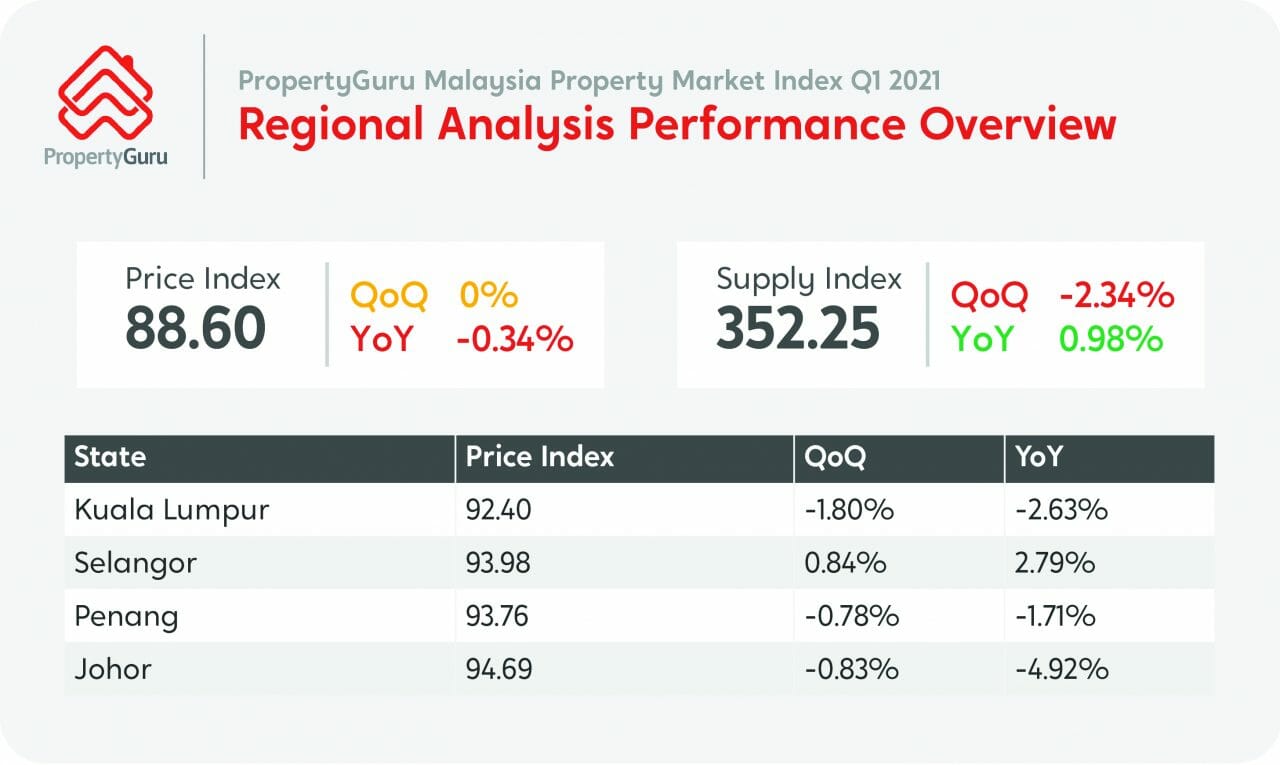According to the PropertyGuru Malaysia Property Market Index (MPMI), the property market is displaying signs of resilience, with the latest report registering no changes in overall asking prices for the final quarter of 2020, staying at 88.60 points in Q3 and Q4 last year.
“It is prudent to note that these aren’t “typical” times, and any worsening of the Covid-19 situation would translate negatively on all sectors of the economy,” Country Manager of PropertyGuru Malaysia, Sheldon Fernandez, said.
Sheldon said that overall, the property market is expected to improve considerably in 2021, specifically in the second half of the year. He added that an anticipated 5.1 percent economic growth forecast and Bank Negara Malaysia’s decision to maintain the overnight policy rate (OPR) at 1.75 percent, with a possibility that it will be cut even further, lends further weight to this view.
Based on supply listings tracked on PropertyGuru, the MPMI found that the overall yearly supply continues to move upwards by 0.98 percent YoY. Despite disruptions brought on by the pandemic, this indicates the supply of property stock is gradually making its way back into the market.
“It is important to note that quarterly fluctuation or inconsistencies in supply volume during the current pandemic climate are reflective of commercial activity limitations.
This is caused by the tightening and loosening of movement control regulations, rather than fundamental demand-supply factors that typically define the market movement,” Sheldon said.
Asking prices in Selangor has seen a slight increase of 0.84 percent QoQ, indicating a potential swing back for asking prices into positive territory in 2021.
Despite economic uncertainty that will continue to hamper buyer behaviour in the upcoming months, Selangor is in a strong position to remain resilient. Many will flock to the country’s most economically vibrant and populous state to seek out job employment.
Asking prices in Kuala Lumpur dropped by 1.80 percent QoQ, as many upmarket properties in the metropolitan area continue to face downward pressure with lack of international interest.
The emphasis towards affordable properties is a welcomed move with the KL City Hall (DBKL) focus on introducing more affordable housing in their Urban Renewal Programme, creating healthier and more sustainable local demand in the future. At the same time, investment opportunists will seek prime city centre properties at current lowered prices.
In other key markets such as Penang, asking prices inched downwards by 0.78 percent QoQ. It is important to note that despite pandemic-related disruptions and slight declines in asking prices, the state has been relatively stable.
With minimal price changes that have rarely breached the two percent YoY mark in the last two years, Penang is likely to be among the first key market to move back into positive price territory once the economy turns the corner.
Down south, asking prices in Johor dropped by 0.83 percent QoQ. The state continues to deal with its large overhang of mismatched properties, which were initially built to target international buyers under Iskandar Malaysia’s plan.
Much of this stock continues to be either beyond the price range of local buyers, which market analysts classify as a long-term issue that may take years to resolve. Going forward, a cooling off of incoming supply will help better stabilise property values in Johor’s diluted market.
Further to this, asking prices in Johor registered the largest drop among the four key regions from a yearly perspective, falling by 4.92 percent YoY.
“Overall, the property market will be defined by “movers” and “waiters” in the coming year, with some bullishly moving into the market to take advantage of prevailing favourable conditions, while others wait for further price drops or more stable financial situations.
“We also expect an early spike in transactional activity in 2021, as buyers rush to take advantage of the HOC initiatives that end on May 31, 2021, while the current low price and low-interest rate prevail,” Sheldon added.











